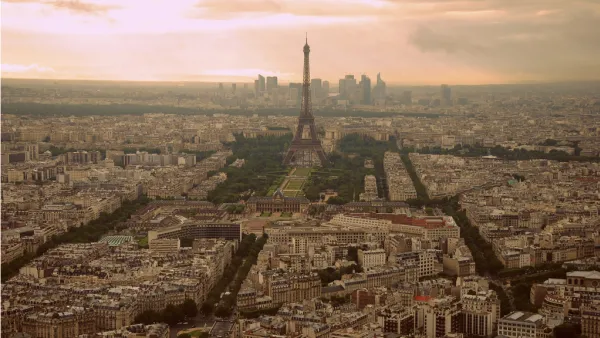Irvin Dawid discovered Planetizen when a classmate in an urban planning lab at San Jose State University shared it with him in 2003. When he left San Jose State that year, he took with him an interest in Planetizen, if not the master's degree in urban & regional planning.
As a long-time environmental activist, he formed the Sustainable Land Use committee for his local Sierra Club chapter and served six years on the Bay Area Air Quality Management District’s Advisory Council from 2002-2008. He maintains his interest in air quality by representing Sierra Club California on the Clean Air Dialogue, a working group of the Calif. Environmental Dialog representing business, regulatory and public health/environmental interests.
Major interests include transportation funding, e.g., gas taxes, vehicle miles traveled (VMT) fees, road tolls and energy subsidies that lead to unlevel playing fields for more sustainable choices.
He hails from Queens (Bayside) and Long Island (Great Neck); received an AAS in Fisheries & Wildlife Technology from SUNY Cobleskill and a B.S. from what is now Excelsior College.
After residing for three years on California’s North Coast, he’s lived on the San Francisco Peninsula since 1983, including 24 years in Palo Alto. Home is now near downtown Burlingame, a short bike-ride to the Caltrain station.
He’s been car-free since driving his 1972 Dodge Tradesman maxi-van, his means to exit Long Island in 1979, to the junkyard in 1988.
Major forms of transportation: A 1991 'citybike' and monthly Caltrain pass, zone 2-2. "It's no LIRR, but it may be the most bike friendly train in America."
Irvin can be reached at [email protected]
Albany Not so Warm to Crude-By-Rail After All
The Port of Albany is thriving as a major hub for CBR shipments from the Bakken field in North Dakota and Saskatchewan province. But we learn there are limits to further growth after the city slapped a moratorium on expansion to oil sands from Canada

High Pollutions Levels in an Unexpected City
We've come to expect hight air pollution levels in Beijing and other Asian cities with high traffic levels and surrounded by dirty coal plants, but not in cities using emission-free nuclear energy and lots of bikes and mass transit. So why Paris?
Oil Trains from North Dakota to the Rescue in Philadelphia
The hazards of shipping North Dakotan crude-by-rail have been well documented and are the focus of new DOT regulations due to its volatility, but there's a more positive side to this oil and the trains that deliver it, illustrated in Philadelphia.
Pop Quiz: What's the Difference Between Aerobic Decomposition and Anaerobic Digestion?
Yes, one is with and the other without oxygen, and both divert waste from the landfill—but in terms of the end products, what is the advantage of anaerobic digestion? Simply put, does society face a shortage of compost or renewable energy?
Aging Natural Gas Infrastructure Suspected in Deadly NYC Explosion
A repair crew was en route to investigate a complaint of gas odor when the two five-story, one-hundred-year-old buildings in East Harlem exploded, killing seven with eight still missing as of press time. Leaking cast iron pipelines may be to blame.

























